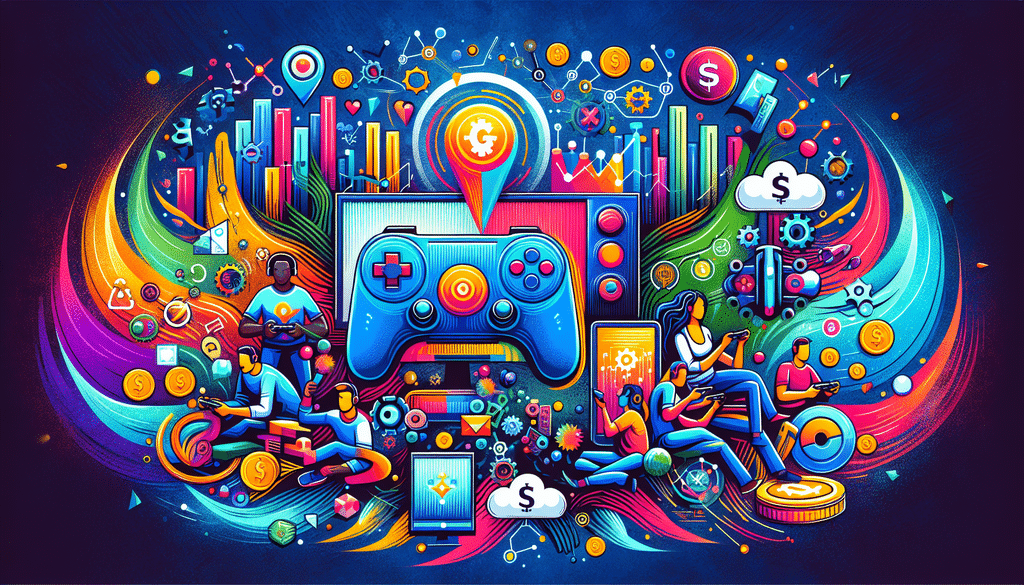In the rapidly evolving landscape of the gaming industry, staying relevant and competitive is crucial. One of the most significant factors contributing to this competitiveness is data readiness. As gaming continues to expand, companies are harnessing the power of data to enhance user engagement and drive monetization strategies. This article delves into how data readiness is transforming the gaming experience and what it means for developers and players alike.
The Importance of Data in Gaming
The gaming sector has always been driven by creativity and innovation, but the introduction of advanced analytics and machine learning has transformed the way developers approach game design and audience engagement. Understanding player behavior through data allows developers to:
- Make informed decisions: By analyzing player data, developers can identify trends, preferences, and pain points, enabling them to craft games that resonate with their audience.
- Enhance personalization: Data enables the customization of gaming experiences, creating tailored content that meets the individual needs of players.
- Improve retention rates: By monitoring player engagement, developers can implement strategies to keep players returning, ultimately boosting lifetime value.
What is Data Readiness?
Data readiness refers to the preparedness of data to be used effectively for analysis and decision-making. In the context of gaming, data readiness involves:
- Collecting relevant data: Capturing insights from various sources, such as in-game actions, player feedback, and social media interactions.
- Cleansing and organizing data: Ensuring that the information collected is accurate, consistent, and stored in a manner that facilitates analysis.
- Implementing advanced analytics tools: Utilizing AI and machine learning to gain deeper insights and drive data-driven decisions.
Enhancing User Engagement Through Data
User engagement is the lifeblood of any gaming title. Developers aiming to boost engagement must leverage data to cultivate a deeper connection with their audience. Here are some ways data readiness enhances user engagement:
Understanding Player Preferences
Data allows developers to grasp what players love and dislike. This understanding can guide the development of:
- Game features: Incorporating popular elements based on player feedback.
- Levels and challenges: Adjusting difficulty based on player skill levels and performance metrics.
- In-game events: Creating time-limited challenges or events that resonate with the player base.
Community Building and Social Interaction
Game developers can use data to create a sense of community among players by:
- Facilitating connections: Designing matchmaking systems that pair players with similar interests for cooperative gameplay.
- Encouraging teamwork: Developing missions that require collaboration, therefore fostering social ties.
- Creating leaderboards: Allowing players to compete and interact in real-time.
Monetization Strategies Enhanced by Data
Game developers are increasingly turning to monetization strategies underpinned by data. These strategies are vital for turning gaming from a passion into a sustainable business. Consider the following:
In-Game Purchases
Data can guide developers in optimizing in-game purchases by:
- Identifying spending habits: Understanding what players are willing to pay for exclusive items or upgrades.
- Offering personalized recommendations: Leveraging past purchase behavior to suggest relevant in-game items.
- Timing promotions: Using analytics to determine when players are most likely to spend, thus maximizing conversion rates.
Advertising and Partnerships
Effective data use can enhance advertising approaches within games. Key strategies include:
- Targeting users: Analyzing player data to serve relevant ads that align with player interests.
- Measuring campaign effectiveness: Using A/B testing to refine advertising strategies based on user response.
- Forming strategic partnerships: Collaborating with brands that resonate with the target audience.
The Future of Data in Gaming
As technology continues to evolve, the gaming industry will increasingly embrace data-driven practices. Emerging technologies such as augmented reality (AR), virtual reality (VR), and blockchain are likely to integrate with data analytics, creating new opportunities for engagement and monetization. Here are a few trends to watch for:
- Real-Time Analytics: Improved capabilities for monitoring player behavior in real time, enabling developers to make instant adjustments to enhance user experience.
- Predictive Analytics: Utilizing data to predict future player behavior and preferences, allowing developers to stay ahead of trends.
- Enhanced Security: As data becomes more integral to gaming, protecting user information will be paramount, sparking new innovations in data security.
Conclusion
In an era where gaming is not only a form of entertainment but also a lucrative business venture, data readiness emerges as a crucial factor for success. By leveraging data, developers can enhance user engagement and refine monetization strategies, ultimately creating a richer and more rewarding experience for players. As the industry grows, those who prioritize data will be positioned to thrive in the competitive gaming landscape.





